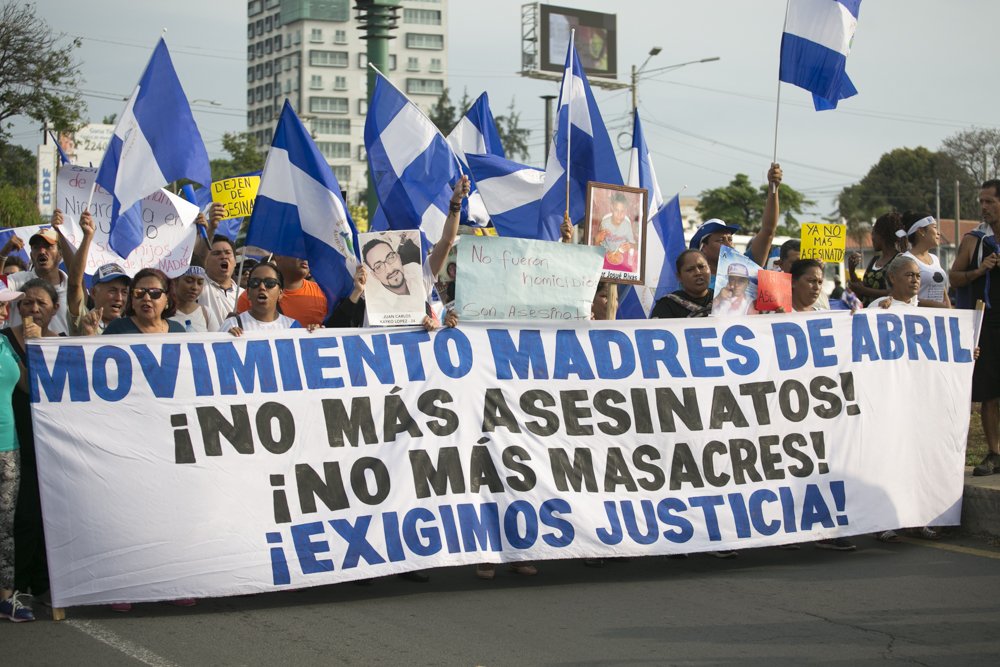Mother’s Day in Nicaragua: The International Community Must Amplify its Cry for Justice
May 30th marks Mother’s Day in Nicaragua, a day that should represent happiness and peace, but in this Central American country it is marked by mourning and pain. We at […]

May 30th marks Mother’s Day in Nicaragua, a day that should represent happiness and peace, but in this Central American country it is marked by mourning and pain. We at the Institute on Race, Equality and Human Rights (Race & Equality) recognize the tireless quest for justice of Nicaraguan mothers and renew our commitment to their struggle. We call on the international community to amplify their cries for truth, justice, reparation measures, and guarantees of non-repetition, and consider suing Nicaragua before the International Court of Justice in The Hague.
Since April 2018, at least 355 mothers have lost their children to state repression against the protests. Exactly six years ago, the regime of Daniel Ortega and Rosario Murillo unleashed a massacre on a peaceful demonstration entitled “the mother of all marches.” Its purpose was for the Nicaraguan people to express their solidarity with the at least 83 women who had lost their children during the first days of protests. During that mobilization, police and parapolice killed 19 more demonstrators.
“We will never forget ‘the mother of all marches.’ It was a day of mourning, a day to show respect and empathy to those who lost their children, but the dictatorship showed its cruelest face by shooting to kill. Ortega and Murillo turned this day into an atrocious massacre,” said Carlos Quesada, Executive Director and Founder of Race & Equality.
“The mothers of April have not been able to live their mourning in peace. They cannot even go to visit their children’s graves. However, in the midst of pain, persecution and exile imposed by the dictatorship, they continue occupying spaces of denunciation and preservation of historical memory. Their commitment to truth and justice remains a beacon of hope in the midst of the darkness imposed by the dictatorship. Their memory will never be forgotten, and their voices will never be silenced!” stated Christina Fetterhoff, Program Director of Race and Equality.
The mothers have organized peaceful marches and demonstrations to demand truth and accountability in their host countries. They have created the Museum of Memory against impunity “AMA Y NO OLVIDA” to honor and dignify their children, and to counter the government-driven discourse that “they were criminals.” This museum, unable to continue with its traveling exhibition in Nicaragua, has been temporarily installed in different cities in the United States, Europe and Latin America.
In addition, the mothers have collaborated with human rights organizations to document cases of violations and abuses, providing valuable testimonies that help to build a historical record of the events. They have also taken their struggle to international bodies, participating in hearings at the Inter-American Commission on Human Rights (IACHR), the United Nations Human Rights Council and other venues to raise awareness of the situation in Nicaragua and press for concrete action.
“We must remember that in Nicaraguan prisons there are women who are mothers with zero contact with their sons and daughters, for using their voice to defend Nicaragua’s freedom. Nor can we forget that the regime has banished dozens of women who have sons and daughters who are minors, and whose family reunification has been severely hindered and even impossible to achieve,” said Carlos Quesada.
According to the Mechanism for the Recognition of Political Prisoners, as of April 15, 2024, at least 23 women were being held for political reasons in unhealthy detention centers, in conditions that are considered cruel and inhumane treatment and torture, and exposed to additional gender-based risks, such as harassment and sexual violence.
On the other hand, there are dozens of mothers and grandmothers in the group of 222 former political prisoners of the regime who were banished to the United States and in the list of 94 people declared “traitors to the homeland” in February 2023. These women lost their nationality, citizenship rights, and their records in Nicaragua, directly affecting the physical and emotional stability not only of themselves, but also of their sons and daughters. The Nicaraguan administration insists on denying passports and, in the case of minors, not issuing exit permits, making family reunification impossible.
Among these mothers and grandmothers are women over 60 years of age and suffering from chronic illnesses. The regime not only took away their citizenship and freedom of movement, but also stripped them of their retirement pensions and thus their right to a dignified old age.
On this Mother’s Day in Nicaragua, the international community must listen and support these brave women in their struggle for justice and peace.

